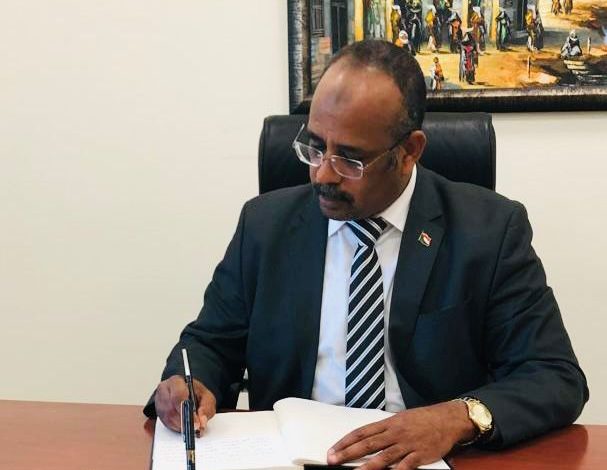On Africa Day: A Rising and Anticipated Role for the Continent

Ambassador: Dr. Elwaleed Sayed Mohamed Ali
ElwaleedSB@gmail.com
Africa Day is celebrated annually on May 25th, commemorating the founding of the Organization of African Unity in 1963, which later evolved into the African Union. This day is an occasion to honor the African continent—its rich history, diverse cultures, and the enduring struggle of its peoples for freedom and independence.
On this day, the world is called upon to show solidarity with the peoples of Africa and to strengthen cooperation for a future marked by greater justice, peace, and sustainable development.
As we mark this year’s anniversary, African nations find themselves grappling with the profound transformations reshaping the global order in recent decades. Africa is now at the heart of strategic, political, and economic discussions worldwide. No longer seen merely as a region of future potential, the continent is increasingly playing an active role in shaping the new global reality. The world now keenly watches Africa’s emerging role, driven by the following factors:
1. *Demographic Power The World’s Youthful Future:*
Africa is the youngest continent on Earth, with over 60% of its population under the age of 25. This youthful demographic presents a strategic advantage—if effectively invested in education, healthcare, and digital skills. As many developed countries face aging populations, Africa stands to become the human engine of global economic growth.
2. *Abundant Natural Resources of Global Demand:*
Africa holds approximately 30% of the world’s mineral resources, including rare metals critical for the production of smartphones and electric vehicles, such as cobalt and lithium. This makes the continent a central player in the global energy transition toward clean energy and enhances its geopolitical significance.
3. *A Battleground for Global Powers:*
Amid growing rivalry between global powers—such as the United States, China, Russia, and the European Union—Africa has become a stage for influence and investment. China, for instance, has poured billions into infrastructure projects, while Western nations are working to rebuild their ties with the continent through developmental initiatives and economic partnerships.
4. *Promising Markets and Rapid Economic Growth:*
Despite ongoing challenges, several African countries are registering high economic growth rates. Nations like Nigeria, Kenya, Rwanda, and South Africa are emerging as centers for technology and innovation. The launch of the African Continental Free Trade Area (AfCFTA) further enhances the continent’s capacity to negotiate as a unified bloc and to open up new markets.
5. *Political and Diplomatic Influence:*
Africa is increasingly asserting its right to a larger role in global institutions such as the United Nations Security Council, the International Monetary Fund, and the World Bank—a logical demand given its population size and economic weight. Recently, the African Union secured a permanent seat in the G20, signaling global recognition of its vital role.
In light of these developments and the ongoing reconfiguration of global power dynamics, Africa stands at the threshold of a historic opportunity—not merely as a partner in development, but as an active agent in shaping global decisions. To realize this potential, the continent must strengthen political stability, combat corruption, promote education and technology, and resolve internal conflicts. The future of the world, increasingly, runs through Africa.



